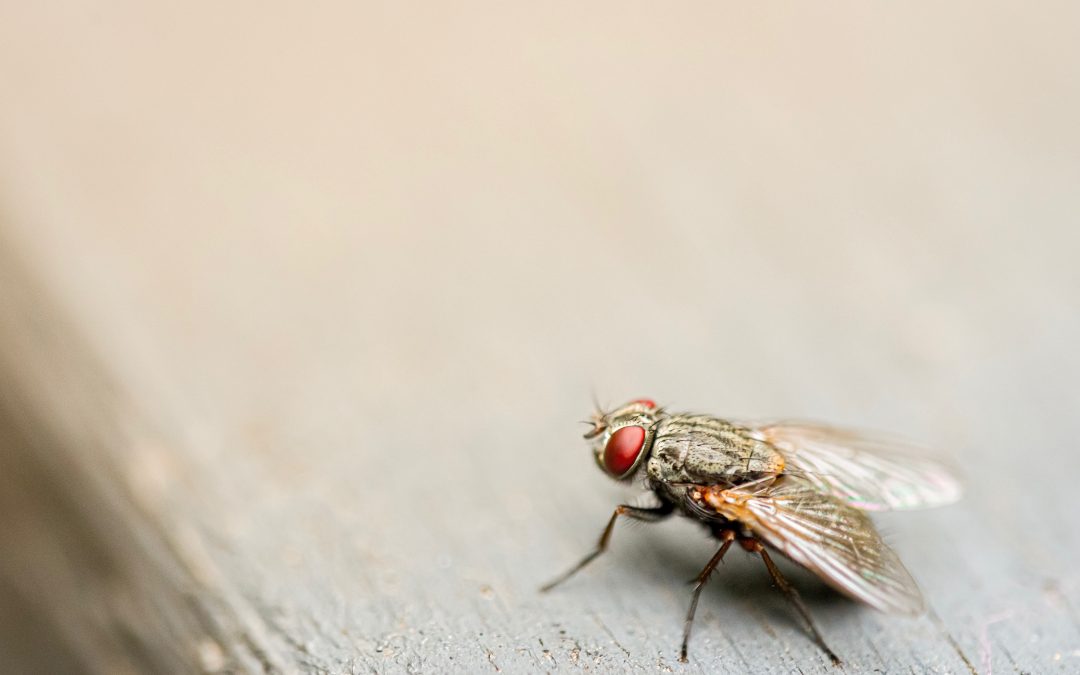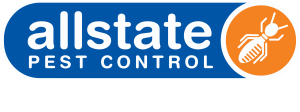
Fly Control
YOUR GUIDE TO FLY CONTROL IN ADELAIDE
No matter where you live in Australia, when the weather heats up you’ll be sure to find yourself swatting away pesky flies. From house flies to fruit flies and drain flies, they’ll scavenge for food everywhere, whether it’s garbage, animal droppings or even your lunch.
And they are more than just a nuisance. They carry germs and contaminate any surface they come into contact with, leading to the spread of diseases such as typhoid and dysentery. With female flies capable of laying over 100 eggs at a time, it doesn’t take long for an outbreak to occur.
Unfortunately for businesses, especially those who handle food, this can result in poor health and safety compliance, leading to reputation damage and potential fines. Restaurants, cafes and manufacturing facilities are some of those most at risk, but any business that handles or sells food should be on alert.
Types of flies
Identifying the type of fly responsible for your outbreak can help you come up with a targeted and effective treatment plan.
Problems caused by flies
Flies are not only a nuisance and distraction; they can also spread diseases, contaminate food and sterile surfaces and result in poor hygiene.
Signs of a fly infestation
You can tell if you have a fly outbreak if you’re noticing a large number of flies, an accumulation of droppings or even the presence of maggots.
Fly outbreaks in businesses
Flies pose a significant threat to food handling businesses, which must meet strict health and safety regulations in order to remain open for trade. A failure to comply can result in heavy fines, damage to your reputation and customers turning away.
How to prevent a fly outbreak
You should keep food covered and stored away, clean up waste and spills, ensure your plumbing is in good condition, cover entry points and remove clutter.
Ways to control a fly outbreak
For DIY fly prevention, consider purchasing insecticide sprays, a fly repellent fan, fly traps or fly paper.
Professional fly prevention
Our technicians are highly trained to manage your fly outbreak. We’ll start by conducting an inspection, then identify and remove fly attractants, apply treatment and schedule appropriate follow ups as needed. You’ll receive a service report to keep for future reference afterwards.
Choose Allstate for a fast and effective fly removal service
Our experienced technicians are familiar with food standard HACCP so we aim to prevente your fly outbreaks as quickly and as safely as possible. We service all suburbs of Adelaide, with 24/7 call outs in case of emergencies. To make our fly treatments as accessible as possible, we offer interest-free payment plans and a 100% satisfaction guarantee.
Types of Flies
There are many species of flies present in Australia, with varying feeding habits, life cycles and seasonal activity. By determining which species of fly is responsible for an outbreak, this can assist with developing an effective, targeted treatment plan. These are the more common species you’re most likely to encounter:
House fly
- Lays 120-130 eggs a time, can take up to 42 days to mature into an adult fly
- Attracted to food smells
- Deposits eggs onto decaying material such as garbage, animal waste, sewage, organic plant matter such as compost
- Rests on walls, floors, ceilings, the ground, plants, fences, compost heaps and rubbish bins
Bush fly
- Drawn to large animals, particularly proteins in bodily fluids such as saliva, sweat and tears and animal waste
- Known to transmit eye infections to humans and livestock
Fruit fly
- Attracted to fermenting sugary liquids in waste bins, fruit and vegetables, drains, spills and cracks in floors/other surfaces
- Commonly found in hospitality settings such as bars, pubs, breweries, vineyards, kitchens, restaurants, fruit and vegetable plants
Drain Fly
- Favours rotting food and other organic waste material that builds up in drains, septic tanks and compost
- Largely resistant a lot of pest control chemicals and cleaning agents
Blowfly
- Attracted to and deposits eggs in rotting meat, particularly dead animals such as rodents and birds, as well as food waste from hospitality venues, and occasionally cheese
Cluster fly
- Usually found in quieter, less frequented areas such as attics and wall voids
- Seeks warm places to hibernate in winter
Fermentation fly
- Attracted to fermenting bacteria and yeast in rotten fruits and vegetables, as well as alcohol
- Found in breweries and pubs
Flesh fly
- Attracted to decaying food, garbage and animal waste
Problems caused by flies
A couple of flies may seem small and harmless, but in the event of an outbreak you may experience the following issues:
They spread diseases
Including typhoid, cholera, dysentery, trachoma, poliomyelitis, cutaneous diphtheria, leprosy. Flies transfer germs which they collect as they scavenge for food in filthy places, via small hairs covering their bodies, droppings and vomit.
They contaminate food and sterile surfaces, resulting in poor hygiene
Flies are generally attracted to all types of food, particularly those that are decomposing.
They’re a general nuisance and distraction
A large swarm of flies and the constant whirring sound from their wings beating together can disrupt business operations, reduce visibility in the workplace and affect productivity
Signs of a fly infestation
If you’re noticing any of the following clues, you may have a major problem on your hands:
Accumulation of fly droppings
These appear like clusters of dark spots in places where they frequent or rest. Different species of flies prefer different areas. Try checking the usual places including ceilings, walls and light fittings. You should also pay attention to difficult to clean places such as drains, pipes, sub-floor cavities, gully traps, around sinks and underneath damaged floor tiles.
Maggots
Once fly eggs hatch, they become cream coloured larvae, known as maggots, before maturing into an adult fly. This indicates a breeding site is present.
A large number of flies
Particularly in areas that can attract flies, brightly lit and water areas. This includes:
- Food storage/preparation/consumption areas
- Areas with standing water including gutters, tyres, old machinery, tanks, water butts, potted plants
- Refuse areas, bins, waste containers, compost and mulch piles can indicate a more serious problem
Fly outbreaks in businesses
A swarm of flies in a workplace can be just as dangerous as it is distracting for staff, patrons and customers. An outbreak may act as a deterrent for people to return, while causing damage to your reputation.
Food and food distribution businesses
Cafes, restaurants, pubs, service stations and supermarkets are required to adhere to hygiene and cleanliness practices. A fly outbreak would indicate a failure to meet food health and safety regulations and result in trading restrictions as well as heavy penalties.
Warehouse and manufacturing facilities
With high volumes of food and stock in a large space, it’s important to have proper food handling, storage and sanitation protocols in place to ensure that flies stay away. If the proper industrial and commercial standards are not met, this can lead to contaminated or damaged goods, stock and equipment, as well as substantial fines.
How to prevent a fly outbreak
By taking extra steps to proactively deter flies, you’ll be able to save time and energy on preventing an outbreak. Here are some tips on how you can discourage flies from entering your building:
Keep food covered and stored away
Flies are strongly attracted to food odours so it’s important to remove any lingering traces of food smells that can be carried by air currents.
Clear away waste and spills
- Tight fitting bin lids keep waste secure
- Dispose of garbage regularly
- Remove pet waste
- Clear away food debris, grease and spills from kitchen benches, table, underneath and around appliances and other dead insects that can attract flies
- Regularly mop floors and wipe benches and sinks
- Don’t leave dirty dishes and cutlery lying around
Maintain drains and fix leaky taps
- Removing sources of water helps keep flies away
- Keep drains clean and remove debris and blockages
Identify and cover entry points
Fit fly screens over windows, doors and other openings, especially around the kitchen and waste areas
Keep bird feeders clean
Remove bird food before dusk
Remove clutter
To reduce hiding places and breeding sites
Ways to control a fly outbreak
If you want to prevente flies in your building, you can consider the following options:
Insecticide spray from hardware stores
- Flying insect aerosols can be applied directly onto the flies.
- Indoor and outdoor surface sprays in pump packs can be used to cover surfaces. Once a fly comes into contact with the surface, the insecticide is transferred to the fly. Pump packs act as a longer lasting deterrent and can last up to a few months inside
Fly repellent fan
Some devices are fitted with holographic blades to scatter light and deter flies.
Fly traps
Containers can be purchased from hardware stores, but can also easily be made DIY using jars or bottles filled with sugar, vinegar and water.
Fly paper
A sticky adhesive surface embedded with fly attractants can physically trap flies.
Professional fly prevention
In business settings, we recommend you don’t take any chances with flies because an outbreak can happen quickly. Allstate’s highly trained technicians are familiar with food standard HACCP, so we can provide professional fly control solutions for your business to ensure that you stay compliant with health and safety regulations. Our fly removal service involves 4 steps:
Inspection
Our fly prevention team will come over to perform a visual assessment of the outbreak to determine the best treatment plan.
Identifying and removing fly attractants
We’ll help you to remove potential food sources and breeding sites for flies to see if this fixes the problem. If needed, we’ll also make recommendations for waste management and maintaining good hygiene practices.
Applying fly treatment
For severe outbreaks, our treatments can be applied out of business hours to minimise disruption. We only use AVMPA approved chemicals, which are safe for the environment, children and pets.
Treatment may include using a combination of sprays, aerosols, fogs, dusting powders and baits.
For reliable, long-term fly control at commercial and industrial facilities with food handling, we highly recommend installing a fly killer unit.
Follow-up treatment
Flies are a constant threat to many food handling businesses and require ongoing monitoring and additional treatment if necessary.
Reporting back to you
We’ll send you a document with important information about your fly outbreak and treatment that you can keep as part of your workplace health and safety management plan. This report is easily accessible for you and your employees for future reference.
Choose Allstate for a fast and effective fly removal service
At Allstate, we know that flies can be an ongoing and costly pest for businesses if you fail to get on top of an outbreak.
If you need professional fly prevention, our highly trained technicians can work around your business hours to assist. Our team not only has a thorough knowledge of food standard HACCP to ensure that you meet health and safety regulations, but we also use treatments that are non-toxic to keep your staff and customers safe.
Being local to Adelaide, we’re able to recognise the behaviour of the different fly species that are responsible for problems in businesses in the area.
We service all suburbs in Adelaide, and make sure that we’re available 24/7 for emergency call outs.
To ensure that your business always stays protected and complaint, we offer a 100% satisfaction money back guarantee on all of our services and products, as well as interest-free payment plans.




Recent Comments